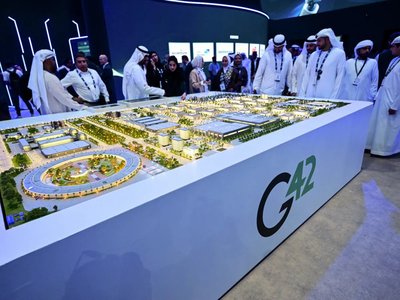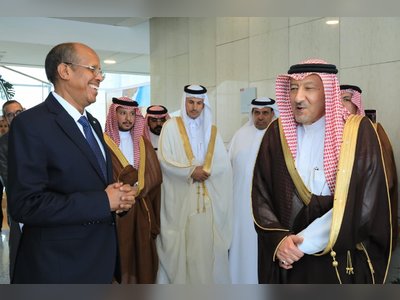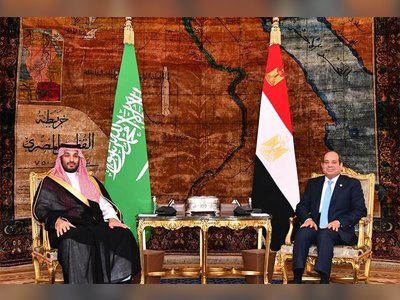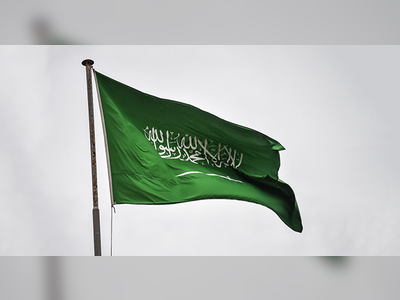
Latest US sanctions are a logical step in Trump’s robust Iran policy, says expert
The Office of Foreign Assets Control, which administers the sanctions, has targeted 18 major Iranian banks — the entire financial sector — which US Secretary of the Treasury Steve Mnuchin identified as “an additional avenue that funds the Iranian government’s malign activities.”
Mnuchin vowed sanctions “will continue until Iran stops its support of terrorist activities and ends its nuclear programs.”
This latest punitive measure comes weeks after the US declared a “snapback” of sanctions on Iran that were waived under the Joint Comprehensive Plan of Action, a 2015 international deal over Iran’s nuclear program, accusing Tehran of having breached that agreement.
“This new targeting of Iran’s financial sector is very much in line with US President Donald Trump’s maximum pressure policy towards Iran, which is using very creative tools to punish, coerce and deter the clerical regime and get them to come back to the negotiating table,” Behnam Ben Taleblu, senior fellow at the Foundation for Defense of Democracies, a non-partisan DC-based think tank, told Arab News.
“The Iranian economy is absolutely not healthy right now. And if this present (US) policy continues, the Iranian revolutionary foreign policy, the policy of resistance to negotiations and foreign pressure, can’t continue.”
Secretary of State Mike Pompeo said the sanctions “are directed at the regime and its corrupt officials that have used the wealth of the Iranian people to fuel a radical, revolutionary cause that has brought untold suffering across the Middle East and beyond.”
He added: “The United States continues to stand with the Iranian people, the longest-suffering victims of the regime's predations.”
But while the US Treasury asserted that the new tranche of sanctions will continue to allow for humanitarian transactions, critics object that they could have a detrimental impact on Iranians’ access to humanitarian resources.
“It’s going to make it even harder for Iran to get ahold of food and medicine,” Barbara Slavin, the director of the Future of Iran Initiative at the Atlantic Council, told CNN.
“It certainly will bring a lot of people to their knees, but it will not bring down the Islamic Republic, it will just intensify their hatred for the US.”
Ben Taleblu said: “It's absolutely a legitimate concern. But we have to keep in mind that this is the US intentionally choosing a peaceful tool of punishment, coercion and deterrence rather than a militarized tool to deal with this regime (when) Iran is constantly opting for a non-peaceful, dangerous, and destabilizing tool.
“Concurrent with this economic tool, the US, perhaps more so than any other point in its history, tried to create legal loopholes and more regulations to permit humanitarian trade with Iran. For instance, the Central Bank of Iran, despite having been hit under multiple nonproliferation and terrorism authorities because of how destabilizing it is, was the subject of discussion of a general license by the Treasury Department for certain humanitarian transactions.”
Iran’s mission to the UN accused the US of committing “economic terrorism.”
Ben Taleblu commented: “It’s really a shame when Iran’s leaders, who for 41-plus years now have chosen to put revolutionary interest over national interest and regime ideology over popular welfare, all of a sudden feel confident weaponizing the Iranian people, who have been downtrodden for so many years, as kind of a tool in their larger debate against the policy of Western pressure.”
The new US order will also penalize non-Iranian institutions that do business with the banks, effectively cutting them off from the international financial system.
It gives foreign companies 45 days to wind down their operations in Iran and cease all activities or face “secondary sanctions.”
Foreign banks are likely to be uncomfortable with trading even in the exempted humanitarian areas because of the risk of being penalized.
That is one of the reasons why Europe has always opposed the blanket financial services blacklisting.
Observers argue the latest US actions will deepen tensions with European nations and others over Iran.
“Unfortunately, Europe’s policy is more of the same,” said Ben Taleblu.
“Many international and European leaders stand side-by-side with American leaders condemning the Iranian material support for terrorism, Iranian acts of terrorism abroad, the activities of Tehran’s proxies in the heartland of the Middle East, weapons proliferation, missile testing and transfers as well as Iran’s growing nuclear stockpiles and other violations of international agreements.
“But when rubber hits the road, they’ve done very little about it. The last time the EU (put) sanctions on Iran using missiles was in December 2012.”
The DC-based expert believes, however, that this transatlantic gap in viewing the Iranian threat could be bridged, and that there is an opportunity for Europeans to “put their money where their mouth is on human rights” and refine their sanctions on Iran, particularly after the regime’s execution of wrestler Navid Afkari.
Some circles in Washington fear that the new sanctions would create a more toxic environment in the region and push Iran to retaliate via its proxies in Iraq.
When the US announced the “snapback” last month, Iranian President Hassan Rouhani threatened “a crushing response to the US bullying” and warned of “dangerous consequences.”
Taleblu sees this as Iran’s policy of graduated escalation: “Where the policy you are presenting them with is so damaging they have no other recourse than to scare you into not continuing that policy.
“The sanctions are so effective, Iran is throwing its hands up more and more in the air. I liken this to asphyxiation. The more you get closer to choking them, the more their hands are going to flail up and down as air is leaving their body. So, it is going to produce this kind of reaction. The question from a policy perspective is: Are you able to contain, limit, contest and nullify it?”
The Iran expert emphasized that, in the end, enforcement of the new penalties is key in determining their success in deterring the regime. Otherwise, laxness can lead to “more cheating, violations, and busting, not just by Iran but also by third parties.”
This latest punitive measure comes weeks after the US declared a “snapback” of sanctions on Iran that were waived under the Joint Comprehensive Plan of Action, a 2015 international deal over Iran’s nuclear program, accusing Tehran of having breached that agreement.
“This new targeting of Iran’s financial sector is very much in line with US President Donald Trump’s maximum pressure policy towards Iran, which is using very creative tools to punish, coerce and deter the clerical regime and get them to come back to the negotiating table,” Behnam Ben Taleblu, senior fellow at the Foundation for Defense of Democracies, a non-partisan DC-based think tank, told Arab News.
“The Iranian economy is absolutely not healthy right now. And if this present (US) policy continues, the Iranian revolutionary foreign policy, the policy of resistance to negotiations and foreign pressure, can’t continue.”
Secretary of State Mike Pompeo said the sanctions “are directed at the regime and its corrupt officials that have used the wealth of the Iranian people to fuel a radical, revolutionary cause that has brought untold suffering across the Middle East and beyond.”
He added: “The United States continues to stand with the Iranian people, the longest-suffering victims of the regime's predations.”
But while the US Treasury asserted that the new tranche of sanctions will continue to allow for humanitarian transactions, critics object that they could have a detrimental impact on Iranians’ access to humanitarian resources.
“It’s going to make it even harder for Iran to get ahold of food and medicine,” Barbara Slavin, the director of the Future of Iran Initiative at the Atlantic Council, told CNN.
“It certainly will bring a lot of people to their knees, but it will not bring down the Islamic Republic, it will just intensify their hatred for the US.”
Ben Taleblu said: “It's absolutely a legitimate concern. But we have to keep in mind that this is the US intentionally choosing a peaceful tool of punishment, coercion and deterrence rather than a militarized tool to deal with this regime (when) Iran is constantly opting for a non-peaceful, dangerous, and destabilizing tool.
“Concurrent with this economic tool, the US, perhaps more so than any other point in its history, tried to create legal loopholes and more regulations to permit humanitarian trade with Iran. For instance, the Central Bank of Iran, despite having been hit under multiple nonproliferation and terrorism authorities because of how destabilizing it is, was the subject of discussion of a general license by the Treasury Department for certain humanitarian transactions.”
Iran’s mission to the UN accused the US of committing “economic terrorism.”
Ben Taleblu commented: “It’s really a shame when Iran’s leaders, who for 41-plus years now have chosen to put revolutionary interest over national interest and regime ideology over popular welfare, all of a sudden feel confident weaponizing the Iranian people, who have been downtrodden for so many years, as kind of a tool in their larger debate against the policy of Western pressure.”
The new US order will also penalize non-Iranian institutions that do business with the banks, effectively cutting them off from the international financial system.
It gives foreign companies 45 days to wind down their operations in Iran and cease all activities or face “secondary sanctions.”
Foreign banks are likely to be uncomfortable with trading even in the exempted humanitarian areas because of the risk of being penalized.
That is one of the reasons why Europe has always opposed the blanket financial services blacklisting.
Observers argue the latest US actions will deepen tensions with European nations and others over Iran.
“Unfortunately, Europe’s policy is more of the same,” said Ben Taleblu.
“Many international and European leaders stand side-by-side with American leaders condemning the Iranian material support for terrorism, Iranian acts of terrorism abroad, the activities of Tehran’s proxies in the heartland of the Middle East, weapons proliferation, missile testing and transfers as well as Iran’s growing nuclear stockpiles and other violations of international agreements.
“But when rubber hits the road, they’ve done very little about it. The last time the EU (put) sanctions on Iran using missiles was in December 2012.”
The DC-based expert believes, however, that this transatlantic gap in viewing the Iranian threat could be bridged, and that there is an opportunity for Europeans to “put their money where their mouth is on human rights” and refine their sanctions on Iran, particularly after the regime’s execution of wrestler Navid Afkari.
Some circles in Washington fear that the new sanctions would create a more toxic environment in the region and push Iran to retaliate via its proxies in Iraq.
When the US announced the “snapback” last month, Iranian President Hassan Rouhani threatened “a crushing response to the US bullying” and warned of “dangerous consequences.”
Taleblu sees this as Iran’s policy of graduated escalation: “Where the policy you are presenting them with is so damaging they have no other recourse than to scare you into not continuing that policy.
“The sanctions are so effective, Iran is throwing its hands up more and more in the air. I liken this to asphyxiation. The more you get closer to choking them, the more their hands are going to flail up and down as air is leaving their body. So, it is going to produce this kind of reaction. The question from a policy perspective is: Are you able to contain, limit, contest and nullify it?”
The Iran expert emphasized that, in the end, enforcement of the new penalties is key in determining their success in deterring the regime. Otherwise, laxness can lead to “more cheating, violations, and busting, not just by Iran but also by third parties.”











